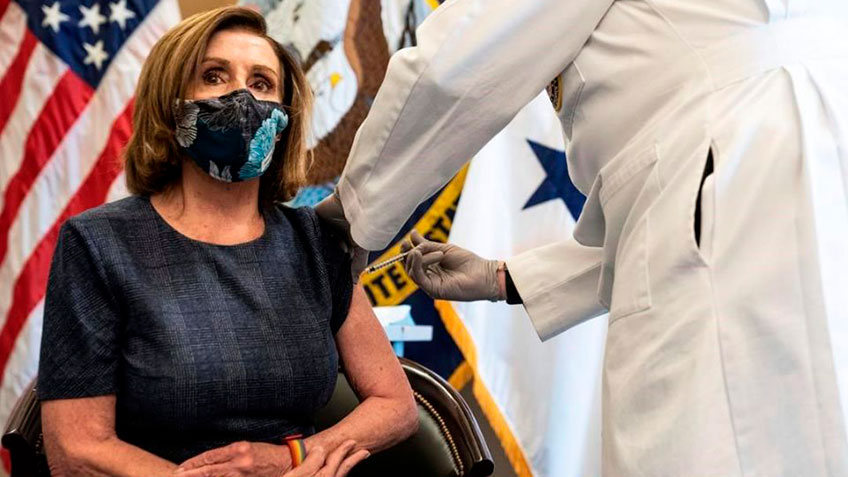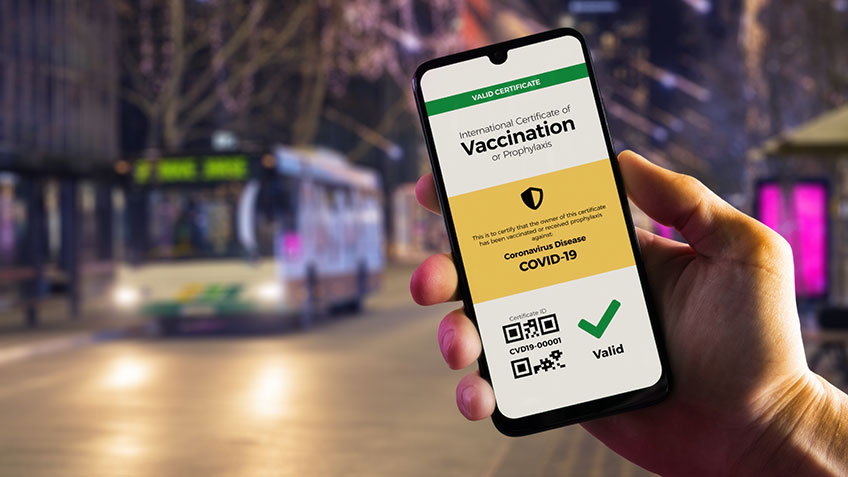The distribution of COVID-19 vaccines has begun, and with them come a welcome light at the end of the tunnel for retailers who faced unprecedented challenges in 2020. Even those that did well, such as grocery stores and big boxes, have faced unforeseen challenges – who would ever have imagined that policing hand sanitization or mask wearing would become a major operational hurdle? In 2021, we can all feel optimistic about the turning tides. However, this year will bring new challenges. Here are some questions retailers are asking about vaccines and what it all means for their business.
Can I Force My Employees To Be Vaccinated?
The answer to this question depends on where you live. In most parts of the western world, you cannot. In Canada, the UK and the European Union vaccines are unlikely to be made mandatory and employers cannot demand their staff be vaccinated. In the US, however, a recent decision made by the Equal Employment Opportunity Committee allows employers to require vaccination, with some exceptions for religious or health reasons.
The Better Question, However, Might Be SHOULD I Force My Employees To Be Vaccinated?
There are many reasons why the answer is no. While there is certainly a case for mandatory vaccines, it is our perspective that this decision should be made by governments (if at all) based on public health considerations rather than by retail brand employers. There would almost certainly be backlash and would likely give fuel to the anti-vax movement. The negative PR and potential lawsuits could make a mandatory vaccination policy problematic.
So How Can Retail Brands Reach Herd Immunity Among Staff Without a Mandatory Policy?
The good news is that there are other ways to achieve high rates of vaccination. Employers should make vaccination as easy and appealing an option as possible, while also, where possible, making the alternative less appealing. (Be careful of legal quagmires – offering perks to those who get vaccinated could be seen as discriminatory.) But there are some ways to incentivize vaccination amongst your team.
They include:
- Remove barriers to access such as covering costs for travel, allowing employees to take paid time off to get vaccinated and covering any related fees.
- Promote knowledge about vaccination by having experts address employees’ questions.
- Provide information about where, when and how employees can be vaccinated.
- Create a sense of positivity about vaccination through your internal communications – for example, sharing a photo of the experience through an intranet social platform.
- Celebrate scientists and medical staff as heroes in your internal and external communications.
- Depending on your location and staffing model, you may be able to relocate staff in order to achieve a 100 percent staff vaccination rate at key locations. This could have a double benefit of being able to offer customers a safer shopping experience while also acting as a motivating factor for employees. (Please review with your legal team to verify regional implications.)

What If I Do All This And I Still Have Hold Outs?
We advise against firing employees who are hesitant to vaccinate, even where it is legally permissible to do so. While it may be frustrating, here are some important factors to consider:
- Severe action, such as firing those who refuse to be vaccinated, may empower anti-vaxxers and give them the ammunition to recruit more vaccine-hesitant people to their cause.
- Vaccination counsellors can provide non-judgmental support and potentially encourage a higher rate of vaccination at your company.
- Racialized groups are likely to be more vaccine-hesitant, perhaps due to an overall mistrust in a health care system rife with racial bias and historical abuse. Their concerns are valid and vaccination may be especially contentious with staff in these demographic groups.
- Even where it may technically be legal to fire or demote employees for refusing to vaccinate, lawsuits are still likely to find their way to courts.
- Mocking those who are hesitant to vaccinate is not productive and unlikely to change minds.

What About Requiring Vaccines For Customers?
It’s likely that proof of vaccination will become a passport to certain activities. Most governments will likely ease restrictions on certain activities – for example, with travel, concerts or sports events – based on vaccination status. Depending on the specific rules in your area, here are some factors to consider:
- Defer to government regulations in your communications.
- Communicate clearly about requirements at every touchpoint so there is no confusion – you don’t want someone to purchase tickets and show up at an event unaware they will be required to show proof of vaccination.
- Expect pushback. The same people who marched mask-less through Target to protest pandemic health requirements will likely balk at other restrictions that impede their movement. You will have to consider whether or not the majority of your consumers will prefer to have access to safer events.
- If you do open up certain operations with a proof of vaccine requirement HIRE SECURITY. Do not ask your frontline staff to manage door crashers or protesters.
- Offer alternatives such as online experiences for those who are not yet vaccinated.

How Can Retailers Manage The Period Between Now And Herd Immunity?
There are differing opinions, but in the US the government is suggesting that in a best-case scenario most people could be vaccinated by the fall. In Canada, the timeline projection provided by the government is less definitive but would likely see most people being vaccinated in 2021 at least. However, these are best case scenarios – we should assume there will be snags along the way, so in order to be prepared for yet more curve balls, here are some strategies retail brands should be planning for.
- Maximize the use of outdoor space and good weather. Many jurisdictions allowed for exceptions to the use of sidewalks, parking lots and streets to make space for commerce. Start lobbying now for access to similar and expanded options for the warm months of 2021.
- Continue to offer a range of shopping options – even once herd immunity is achieved, there will be many people who prefer to continue to practice social distancing.
- Improve your curbside pick-up / take-out experience through direct messaging apps – they have a longer role to play in developing customer loyalty and improving experience.
- Support local brands by offering shelf space and boosting their profile on your social accounts.
- Improve your e-commerce experience – online shopping is not going away so this is a long-term investment and you need it sooner than later.
- Figure out how to support your staff. Many HR experts anticipate a long-term loss of frontline retail workers as a result of the pandemic. If you have great people, figure out how to keep them. It will cost you less in the long term to take care of them now than to hire and train new staff in an environment where retail jobs may be viewed as unattractive.
- Stay in touch with regional managers and store managers to find out what innovations are working on the ground and give them some latitude to improvise (with guidelines). You never know what they might come up with!
- Consider how your communications can contribute to a global recovery through communicating kindness and optimism, supporting social causes and vaccination efforts.
Thankfully it’s clear we won’t be living in quarantine forever – but to get to the other side of this pandemic, retail leaders will have to be strategic in their approach and follow best practices to encourage vaccination not just for staff, but also for the general public. Brands that have clout with certain demographics can and should use it for the greater good.
A side note: While the anti-vax movement may make your blood boil, adding fuel to the fire is not advisable – it just doesn’t work! Think about it – no one likes to be lectured. If you want to try and improve your likelihood of productive conversations with vaccine-hesitant employees, this article has some great advice.

